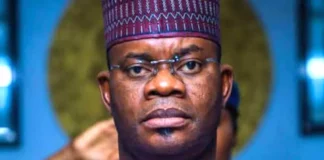OPINION
By Comrade Owolabi Aleshinloye
Money bag politics, indeed, has been a significant issue in the political landscape of Nigeria, hindering the country’s development in various ways. It refers to the practice of using substantial financial resources to gain political power, influence elections, and control the socio-political environment. This phenomenon has had detrimental effects on the country’s governance, economic progress, public trust, and overall development.
One of the most significant impacts of money bag politics in Nigeria is the erosion of democratic principles and the distortion of the electoral process. When political candidates with significant financial resources use their wealth to garner support and influence voters through various means, including vote buying and extravagant campaigns, it undermines the democratic ideals of fair representation and equal opportunity for all candidates. This often leads to a situation where those with the most financial power have a disproportionate influence on political outcomes, regardless of their qualifications or commitment to public service.

Furthermore, the focus on money bag politics often leads to the prioritization of personal agendas and the pursuit of narrow interests over the broader welfare of the Nigerian people. Political leaders who rely on wealthy sponsors or personal wealth to secure their positions may be more inclined to serve the interests of their financial backers rather than the public, leading to corruption, lack of accountability, and the mismanagement of public resources. This not only hampers the country’s development but also perpetuates a cycle of economic inequality and social injustice.
Another detrimental effect of money bag politics is the negative impact on meritocracy and good governance. When political power is seen as the preserve of the wealthy and well-connected, it discourages competent and genuinely motivated individuals from participating in politics. This results in a dearth of visionary and principled leaders who are committed to driving positive change and implementing policies that enhance the well-being of the Nigerian people. As a consequence, the country may miss out on the opportunity to tap into the full potential of its human capital and innovative ideas, stunting its progress and global competitiveness.
Moreover, the prevalence of money bag politics has contributed to a widespread loss of public trust in the political system and the government. When the electorate perceives that political decisions are driven by financial interests rather than the common good, it leads to disillusionment and apathy, weakening the social contract between the government and the governed. The resultant lack of trust and engagement can hinder the effective implementation of policies and initiatives necessary for sustainable development, as well as impede social cohesion and collective action towards shared national goals.
Furthermore, the influence of money bag politics often perpetuates a culture of impunity and weakens the rule of law. Candidates and elected officials who rely on financial resources to secure political power may feel insulated from accountability and detached from the legal and ethical standards expected of public officeholders. This can lead to a disregard for institutional checks and balances, fostering an environment where corrupt practices, exploitation, and unethical behavior are normalized, undermining the integrity of the political system and impeding the country’s development.
Addressing the challenge of money bag politics in Nigeria requires multifaceted efforts aimed at reforming the electoral process, strengthening institutions, promoting transparency and accountability, and empowering citizens to actively participate in the political process. One crucial step is to institute comprehensive campaign finance reforms that limit the influence of money in politics, enhance transparency in political funding, and promote a level playing field for all candidates.
Additionally, robust enforcement of existing anti-corruption laws and the establishment of independent oversight bodies to monitor political finance and investigate electoral malpractices are essential to curbing the negative effects of money bag politics. Strengthening the capacity and autonomy of law enforcement agencies and the judiciary to hold accountable those who engage in corrupt practices and subvert the electoral process is vital for promoting ethical conduct and upholding the rule of law.
Moreover, efforts to promote civic education, political awareness, and grassroots mobilization can empower citizens to demand transparency, accountability, and ethical behavior from their elected representatives. By fostering a culture of active citizenship and civic engagement, the Nigerian people can play a pivotal role in shaping the political landscape, promoting merit-based leadership, and holding leaders accountable for their actions in the pursuit of national development.
Furthermore, promoting inclusive economic policies, social welfare programs, and initiatives that reduce the reliance on personal wealth and financial patronage in politics can help mitigate the influence of money bag politics and address the root causes of social inequalities and economic disparities. By creating an enabling environment that fosters equal opportunities and social mobility, the country can cultivate a new generation of leaders driven by merit, integrity, and a genuine commitment to public service.
In conclusion, the prevalence of money bag politics in Nigeria has been a significant impediment to the country’s development, undermining democratic principles, eroding public trust, and impeding good governance. Addressing this challenge requires comprehensive reforms that promote transparency, accountability, and civic engagement, while also tackling the underlying socio-economic factors that perpetuate the influence of money in politics. By fostering a political environment that values integrity, merit, and the common good, Nigeria can progress towards a more inclusive and sustainable path of development that benefits all its citizens.











